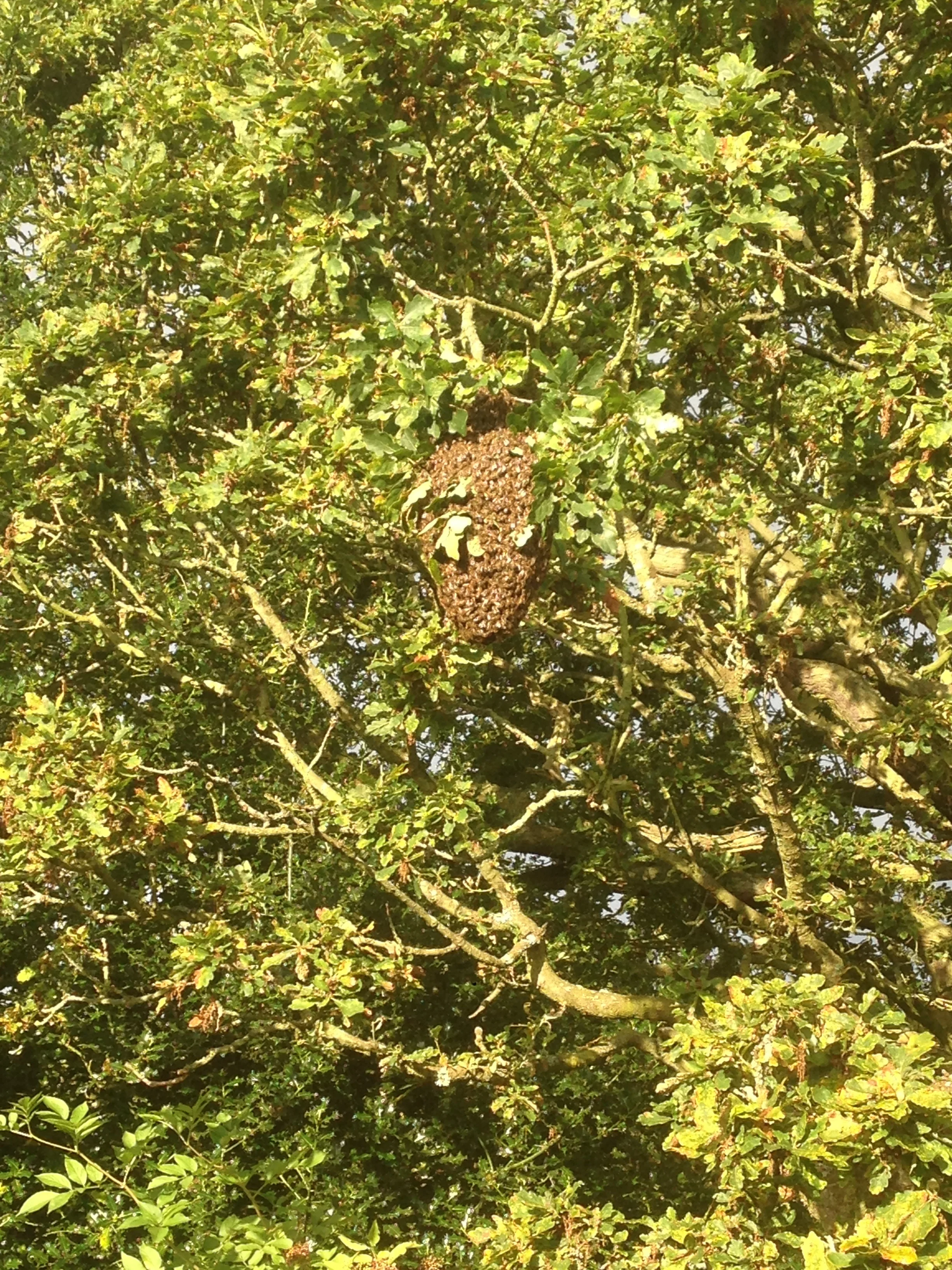Swarming Times - our local honey bees
It was action stations this morning as on my usual morning round in the garden I spotted a large swarm of honey bees in the old oak tree.
In all probability these are from one of my two hives, which if so are indicative of a novice bee keeper having not be aware of its imminence or taken suitable preventative action. Actually I had observed that the hive from the swarm I caught in Heeley in May was going through strange times. I had seen a number of what I felt were supercedure cells being made in it. These are contructed by the female worker bees when they sense their current queen is starting to fail, that is her egg laying performace is deterioating and so threatens the future survival of the colony.
Further than this eight days ago I had actually spotted what I assumed was a newly hatched queen and heared her “piping”. The video below has a small segment of this amazing vocal performace right at the beginning – its actually just two hoots from what was a quite prolonged and loud experience - you have to listen hard in the first two seconds! My thought at this time was to leave well alone feeling that it was late in the year for a swarm ,the numbers of bees in this hive was not huge and that this new queen would take over in a perfect supercedure. This is a term bee keepers use for the situation where the new and old queen can actually live together for a period. Its perfect as it reduces the gap between the old queen stopping laying and the new starting to lay new eggs.
I managed to catch the swarm by cutting down the branch to which they were attached attempting to drop this into a large cardborad box I positioned below. This did not go quite to plan with most of the branch missing the box meaning there was a lot of extra scooping to do in the undergrowth. I transferred the bees from the box into a “nuc” hive (a smaller specially designed bee hive for new colonies). Meanwhile “loose” bees were forming another smaller swarm on a branch close to the one I cut meaning another adventure up the ladder.
I hope that I have got the queen and that the bees are happy to settle in this new home. If so there is a chance that I will increase my colony number to 3, giving more beneficial pollinators for the garden and beyond and the possibility of a local honey crop next year.




